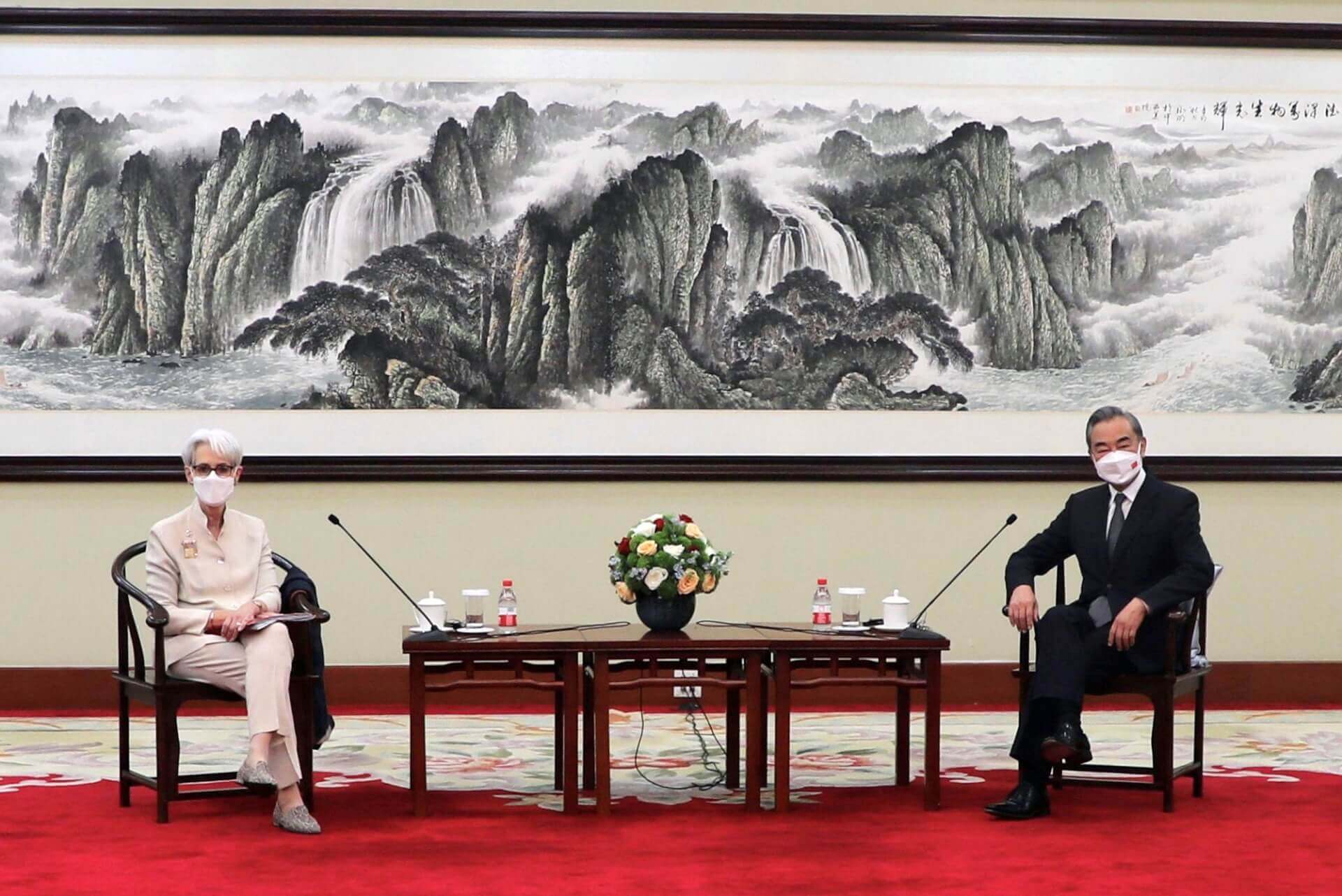United States (US) Deputy Secretary of State Wendy Sherman travelled to China on Sunday for a face-to-face meeting with Chinese Vice Foreign Minister Xie Feng. During the meeting, the Chinese side presented a “List of Wrongdoings that Must Stop” and a “List of Key Individual Cases that China Has Concerns.”
The Chinese state-owned media house Global Times reported that the lists included “urging the US to lift sanctions and visa restrictions targeted at Chinese officials and entities, and withdrawing Meng Wanzhou’s extradition.” Meng is the Chief Financial Officer of the embattled Chinese telecom giant, Huawei. She was arrested in Vancouver in 2018 on a bank fraud warrant issued by the Trump administration and is currently facing trial. In addition, after the meeting, Xie told the press that the lists urged the US to “unconditionally lift visa restrictions on members of the Communist Party of China (CPC) and their families, and Chinese students.” China also called on the US to “stop suppressing Chinese companies and hinder the Confucius Institutes’ development.”
The meetings concluded on Monday with criticism and a lack of optimism for the future of bilateral ties. Before the talks ended, China’s Ministry of Foreign Affairs (FMPRC) stated that Xie Feng told Sherman that the relationship between their countries “is now in a stalemate and faces serious difficulties.” While claiming that the US was “demonising” China, Xie said, “Fundamentally, it is because some Americans portray China as an “imagined enemy...The US keeps making an issue with China. It’s as if the US side has nothing to talk about except China. We urge the United States to change its highly misguided mindset and dangerous policy.”
On the other hand, in a press release, State Department spokesperson Ned Price said Sherman had “a frank and open discussion” with her Chinese counterparts on “ways to set terms for responsible management of the US-China relationship.” Sherman stressed that while the US “welcomes the stiff competition” between the two countries, it does not seek conflict with China. Moreover, Price said Sherman raised the US’ “concerns about human rights, including Beijing’s anti-democratic crackdown in Hong Kong; the ongoing genocide and crimes against humanity in Xinjiang; abuses in Tibet; and the curtailing of media access and freedom of the press.” The diplomat also expressed concern about “Beijing’s conduct in cyberspace; across the Taiwan Strait; and in the East and South China Seas.”
China has historically considered matters in Hong Kong, Xinjiang, and Tibet to be its own “internal affairs”, and in this regard, another press release by FMPRC quoted Xie as saying: “It is the United States, not anybody else, who is the inventor, and patent and intellectual property owner of coercive diplomacy. It is the United States who has engaged in broad unilateral sanctions, long-arm jurisdiction and interference in other countries internal affairs.”
Sherman also met State Councilor and Foreign Minister (FM), Wang Yi, and other Chinese officials during her visit. Referring to the lists, the BBC quoted Wang saying that it was up to the US to “make the right choice.”
The meetings between the two sides come a week after the Joe Biden administration joined a large international coalition to condemn China for its global cyberattacks. Sherman is the most senior US official to visit China in months.
Despite the tensions, Xie concluded the meeting on a hopeful note. In another FMPRC press release, he said: “China wants to work with the United States to seek common ground while shelving the differences. The US side needs to change course and work with China based on mutual respect and embrace fair competition and peaceful coexistence with China. After all, a healthy and stable China-US relationship serves the interests of both sides.”

